#palestine reading list
Text
17/12/23 this masterlist has been completely, vetted, revamped and reformatted with free access to all reading and viewing material. It will be updated and edited periodically so please try and reblog the original post if you're able.
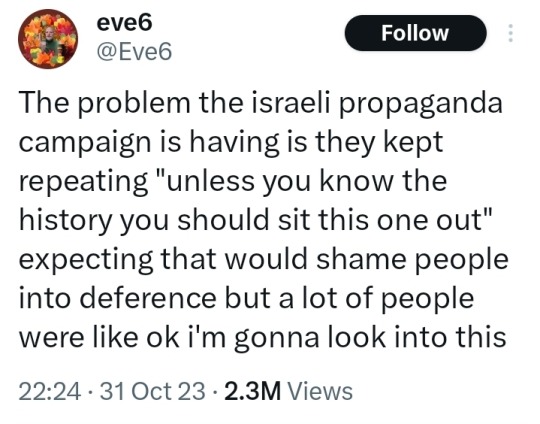
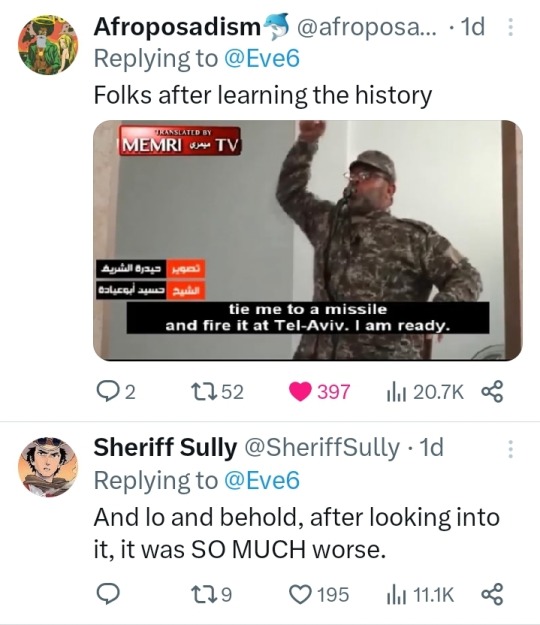

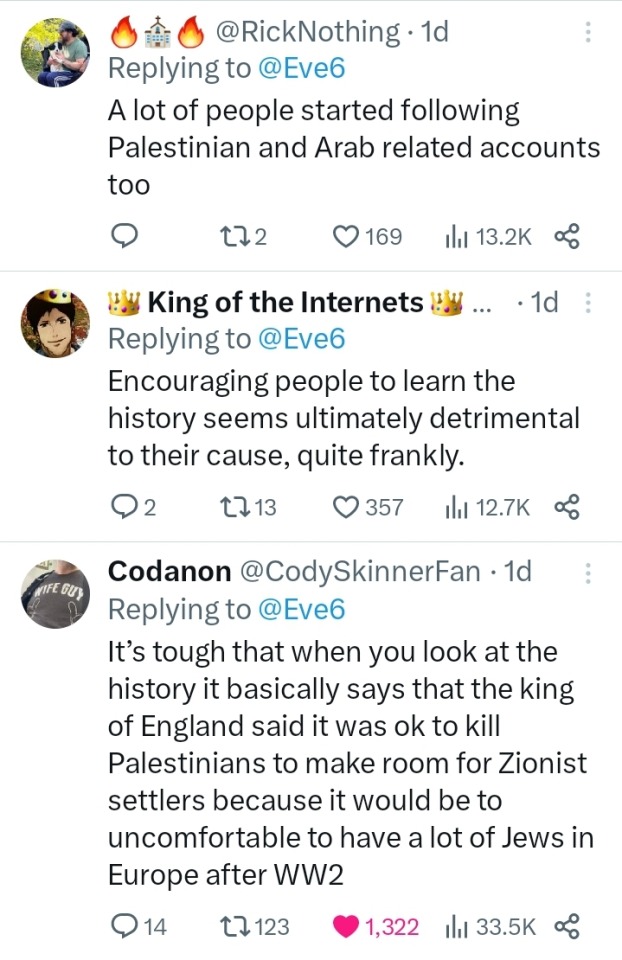
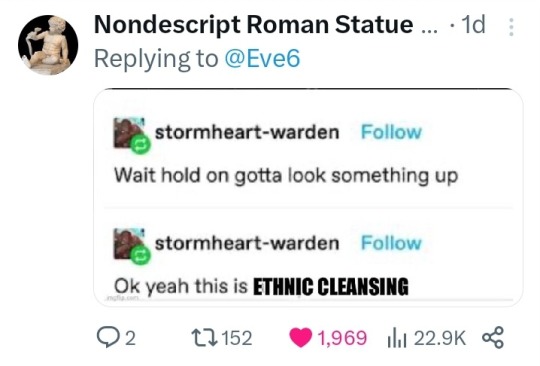
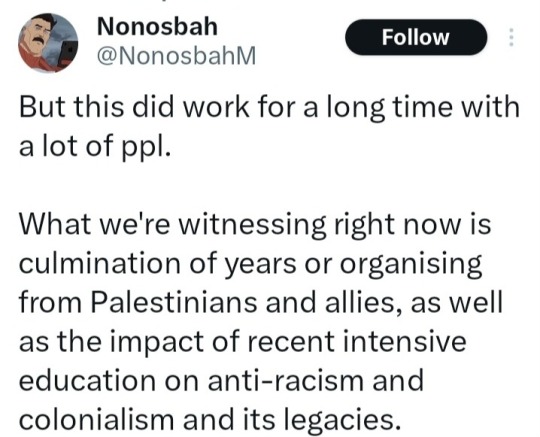
The Big Damn List Of Stuff They Said You Didn't Know
(Yes, it's a lot. Just choose your preferred medium and then pick one.)
Podcasts
Backgrounders and Quick Facts
Interactive Maps
Teach-Out Resources
Reading Material (free)
Films and Documentaries (free)
Non-Governmental Organizations
Social Media
How You Can Help
Podcasts
Cocktails & Capitalism: The Story of Palestine Part 1, Part 3
It Could Happen Here: The Cheapest Land is Bought with Blood, Part 2, The Balfour Declaration
Citations Needed: Media narratives and consent manufacturing around Israel-Palestine and the Gaza Siege
The Deprogram: Free Palestine, ft. decolonizatepalestine.com.
Backgrounders and Quick Facts
The Palestine Academy: Palestine 101
Institute for Middle East Understanding: Explainers and Quick Facts
Interactive Maps
Visualizing Palestine
Teach-Out Resources
1) Cambridge UCU and Pal Society
Palestine 101
Intro to Palestine Film + Art + Literature
Resources for Organising and Facilitating)
2) The Jadaliya YouTube Channel of the Arab Studies Institute
Gaza in Context Teach-in series
War on Palestine podcast
Updates and Discussions of news with co-editors Noura Erakat and Mouin Rabbani.
3) The Palestine Directory
History (virtual tours, digital archives, The Palestine Oral History Project, Documenting Palestine, Queering Palestine)
Cultural History (Palestine Open Maps, Overdue Books Zine, Palestine Poster Project)
Contemporary Voices in the Arts
Get Involved: NGOs and campaigns to help and support.
3) PalQuest Interactive Encyclopedia of the Palestine Question.
4) The Palestine Remix by Al Jazeera
Books and Articles
Free reading material
My Gdrive of Palestine/Decolonization Literature (nearly all the books recommended below + books from other recommended lists)
Five free eBooks by Verso
Three Free eBooks on Palestine by Haymarket
LGBT Activist Scott Long's Google Drive of Palestine Freedom Struggle Resources
Recommended Reading List
Academic Books
Edward Said (1979) The Question of Palestine, Random House
Ilan Pappé (2002)(ed) The Israel/Palestine Question, Routledge
Ilan Pappé (2006) The Ethnic Cleansing of Palestine, OneWorld Publications
Ilan Pappé (2011) The Forgotten Palestinians: A History of the Palestinians in Israel, Yale University Press
Ilan Pappé (2015) The Idea of Israel: A History of Power and Knowledge, Verso Books
Ilan Pappé (2017) The Biggest Prison On Earth: A History Of The Occupied Territories, OneWorld Publications
Ilan Pappé (2022) A History of Modern Palestine, Cambridge University Press
Rosemary Sayigh (2007) The Palestinians: From Peasants to Revolutionaries, Bloomsbury
Andrew Ross (2019) Stone Men: the Palestinians who Built Israel, Verso Books
Rashid Khalidi (2020) The Hundred Years’ War on Palestine: A History of Settler Colonialism and Resistance 1917–2017
Ariella Azoulay (2011) From Palestine to Israel: A Photographic Record of Destruction and State Formation, 1947-1950, Pluto Press
Ariella Azoulay and Adi Ophir (2012) The One-State Condition: Occupation and Democracy in Israel/Palestine, Stanford University Press.
Jeff Halper (2010) An Israeli in Palestine: Resisting Dispossession, Redeeming Israel, Pluto Press
Jeff Halper (2015) War Against the People: Israel, the Palestinians and Global Pacification
Jeff Halper (2021) Decolonizing Israel, Liberating Palestine: Zionism, Settler Colonialism, and the Case for One Democratic State, Pluto Press
Anthony Loewenstein (2023) The Palestine Laboratory: How Israel exports the Technology of Occupation around the World
Noura Erakat (2019) Justice for Some: Law and the Question of Palestine, Stanford University Press
Neve Gordon (2008) Israel’s Occupation, University of California Press
Joseph Massad (2006) The Persistence of the Palestinian Question: Essays on Zionism and the Palestinians, Routledge
Memoirs
Edward Said (1986) After the Last Sky: Palestine Lives, Columbia University PEdward Saidress
Edward Said (2000) Out of Place; A Memoir, First Vintage Books
Mourid Barghouti (2005) I saw Ramallah, Bloomsbury
Hatim Kanaaneh (2008) A Doctor in Galilee: The Life and Struggle of a Palestinian in Israel, Pluto Press
Raja Shehadeh (2008) Palestinian Walks: Into a Vanishing Landscape, Profile Books
Ghada Karmi (2009) In Search of Fatima: A Palestinian Story, Verso Books
Vittorio Arrigoni (2010) Gaza Stay Human, Kube Publishing
Ramzy Baroud (2010) My Father Was a Freedom Fighter: Gaza's Untold Story, Pluto Press
Izzeldin Abuelaish (2011) I Shall Not Hate: A Gaza Doctor’s Journey on the Road to Peace and Human Dignity, Bloomsbury
Atef Abu Saif (2015) The Drone Eats with Me: A Gaza Diary, Beacon Press
Anthologies
Voices from Gaza - Insaniyyat (The Society of Palestinian Anthropologists)
Letters From Gaza • Protean Magazine
Salma Khadra Jayyusi (1992) Anthology of Modern Palestinian Literature, Columbia University Press
ASHTAR Theatre (2010) The Gaza Monologues
Refaat Alreer (ed) (2014) Gaza Writes Back, Just World Books
Refaat Alreer, Laila El-Haddad (eds) (2015) Gaza Unsilenced, Just World Books
Cate Malek and Mateo Hoke (eds)(2015) Palestine Speaks: Narrative of Life under Occupation, Verso Books
Jehad Abusalim, Jennifer Bing (eds) (2022) Light in Gaza: Writings Born of Fire, Haymarket Books
Short Story Collections
Ghassan Kanafani, Hilary Kilpatrick (trans) (1968) Men in the Sun and Other Palestinian Stories, Lynne Rienner Publishers
Ghassan Kanafani, Barbara Harlow, Karen E. Riley (trans) (2000) Palestine’s Children: Returning to Haifa and Other Stories, Lynne Rienner Publishers
Atef Abu Saif (2014) The Book of Gaza: A City in Short Fiction, Comma Press
Samira Azzam, Ranya Abdelrahman (trans) (2022) Out Of Time: The Collected Short Stories of Samira Azzam
Sonia Sulaiman (2023) Muneera and the Moon; Stories Inspired by Palestinian Folklore
Essay Collections
Edward W. Said (2000) Reflections on Exile and Other Essays, Harvard University Press
Salim Tamari (2008) Mountain against the Sea: Essays on Palestinian Society and Culture, University of California Press
Fatma Kassem (2011) Palestinian Women: Narratives, histories and gendered memory, Bloombsbury
Ramzy Baroud (2019) These Chains Will Be Broken: Palestinian Stories of Struggle and Defiance in Israeli Prisons, Clarity Press
Novels
Sahar Khalifeh (1976) Wild Thorns, Saqi Books
Liyana Badr (1993) A Balcony over the Fakihani, Interlink Books
Hala Alyan (2017) Salt Houses, Harper Books
Susan Abulhawa (2011) Mornings in Jenin, Bloomsbury
Susan Abulhawa (2020) Against the Loveless World, Bloomsbury
Graphic novels
Joe Sacco (2001) Palestine
Joe Sacco (2010) Footnotes in Gaza
Naji al-Ali (2009) A Child in Palestine, Verso Books
Mohammad Sabaaneh (2021) Power Born of Dreams: My Story is Palestine, Street Noise Book*
Poetry
Fady Joudah (2008) The Earth in the Attic, Sheridan Books,
Ghassan Zaqtan, Fady Joudah (trans) (2012) Like a Straw Bird It Follows Me and Other Poems, Yale University Press
Hala Alyan (2013) Atrium: Poems, Three Rooms Press*
Mohammed El-Kurd (2021) Rifqa, Haymarket Books
Mosab Abu Toha (2022) Things You May Find Hidden in My Ear: Poems from Gaza, City Lights Publishers
Tawfiq Zayyad (2023) We Are Here to Stay, Smokestack Books*
The Works of Mahmoud Darwish
Poems
Rafeef Ziadah (2011) We Teach Life, Sir
Nasser Rabah (2022) In the Endless War
Refaat Alareer (2011) If I Must Die
Hiba Abu Nada (2023) I Grant You Refuge/ Not Just Passing
[All books except the ones starred are available in my gdrive. I'm adding more each day. But please try and buy whatever you're able or borrow from the library. Most should be available in the discounted Free Palestine Reading List by Pluto Press, Verso and Haymarket Books.]
Human Rights Reports & Documents
Information on current International Court of Justice case on ‘Legal Consequences arising from the Policies and Practices of Israel in the Occupied Palestinian Territory, including East Jerusalem’
UN Commission of Inquiry Report 2022
UN Special Rapporteur Report on Apartheid 2022
Amnesty International Report on Apartheid 2022
Human Rights Watch Report on Apartheid 2021
Report of the United Nations Fact-Finding Mission on the Gaza Conflict’ 2009 (‘The Goldstone Report’)
Advisory Opinion on the Legal Consequences of the Construction of a Wall in the Occupied Palestinian Territory, International Court of Justice, 9 July 2004
Films
Documentaries
Jenin, Jenin (2003) dir. Mohammed Bakri
Massacre (2005) dir. Monica Borgmann, Lokman Slim, Hermann Theissen
Slingshot HipHop (2008) dir. Jackie Reem Salloum
Waltz with Bashir (2008) dir. Ari Folman † (also on Amazon Prime)
Tears of Gaza (2010) dir. Vibeke Løkkeberg (also on Amazon Prime)
5 Broken Cameras (2011) dir. Emad Burnat (also on Amazon Prime)
The Gatekeepers (2012) dir. Dror Moreh (also on Amazon Prime)
The Great Book Robbery (2012) | Al Jazeera English
Al Nakba (2013) | Al Jazeera (5-episode docu-series)
The Village Under the Forest (2013) dir. Mark J. Kaplan
Where Should The Birds Fly (2013) dir. Fida Qishta
Naila and the Uprising (2017) (also on Amazon Prime)
GAZA (2019) dir. Andrew McConnell and Garry Keane
Gaza Fights For Freedom (2019) dir. Abby Martin
Little Palestine: Diary Of A Siege (2021) dir. Abdallah Al Khatib
Palestine 1920: The Other Side of the Palestinian Story (2021) | Al Jazeera World Documentary
Gaza Fights Back (2021) | MintPress News Original Documentary | dir. Dan Cohen
Innocence (2022) dir. Guy Davidi
Short Films
Fatenah (2009) dir. Ahmad Habash
Gaza-London (2009) dir. Dina Hamdan
Condom Lead (2013) dir. Tarzan Nasser, Arab Nasser
OBAIDA (2019) | Defence for Children Palestine
Theatrical Films
Divine Intervention (2002) | dir. Elia Suleiman (also on Netflix)
Paradise Now (2005) dir Hany Abu-Assad (also on Amazon Prime)
Lemon Tree (2008) (choose auto translate for English subs) (also on Amazon Prime)
It Must Be Heaven (2009) | dir. Elia Suleiman †
The Promise (2010) mini-series dir. Peter Kosminsky (Part 1, Part 2, Part 3, Part 4)
Habibi (2011)* dir. Susan Youssef
Omar (2013)* dir. Hany Abu-Assad †
3000 Nights (2015)* dir. Mai Masri
Foxtrot (2017) dir. Samuel Maoz (also on Amazon Prime)
The Time that Remains (2019) dir. Elia Suleiman †
Gaza Mon Amour (2020) dir. Tarzan Nasser, Arab Nasser †
The Viewing Booth (2020) dir. Ra'anan Alexandrowicz (on Amazon Prime and Apple TV)
Farha (2021)* | dir. Darin J. Sallam
Palestine Film Institute Archive
All links are for free viewing. The ones marked with a star (*) can be found on Netflix, while the ones marked † can be downloaded for free from my Mega account.
If you find Guy Davidi's Innocence anywhere please let me know, I can't find it for streaming or download even to rent or buy.
In 2018, BDS urged Netflix to dump Fauda, a series created by former members of IOF death squads that legitimizes and promotes racist violence and war crimes, to no avail. Please warn others to not give this series any views. BDS has not called for a boycott of Netflix. ]
Planning to link two separate posts here listing all the books in my drive and all the films I couldn't include here. Check back for updates.
NGOs
The Boycott, Divestment, Sanctions (BDS) Movement
Medical Aid for Palestinians
Euro-Mediterranean Human Rights Monitor
Palestine Defence for Children International
Palestinian Feminist Collective
Al-Shabaka: The Palestinian Policy Network
Addameer Prisoner Support and Human Rights Association
Institute for Palestine Studies
Al Haq
Artists for Palestine
The Palestine Museum
Jewish Currents
B’Tselem
DAWN
Social Media
Palestnians on Tumblr
@el-shab-hussein
@killyfromblame
@apollos-olives
@fairuzfan
@palipunk
@sar-soor
@nabulsi
@ibtisams
@wearenotjustnumbers2
@90-ghost (is in Gaza right now. Please donate to his GFM and boost it.)
@tamarrud
Allies and advocates (not Palestinian)
@bloglikeanegyptian beautiful posts that read like op-eds
@vyorei daily news roundups
@luthienne resistance through prose
@decolonize-the-left scoop on the US political plans and impacts
@feluka
(Please don't expect any of these blogs to be completely devoted to Palestine allyship; they do post regularly about it but they're still personal blogs and post whatever else they feel like. Do not harrass them.)
Gaza journalists
Motaz Azaiza IG: @motaz_azaiza | Twitter: @azaizamotaz9 | TikTok: _motaz.azaiza (left Gaza as of Jan 23)
Bisan Owda IG and TikTok: wizard_bisan1 | Twitter: @wizardbisan
Saleh Aljafarawi IG: @saleh_aljafarawi | Twitter: @S_Aljafarawi | TikTok: @saleh_aljafarawi97
Plestia Alaqad IG: @byplestia | TikTok: @plestiaaqad (left Gaza)
Wael Al-Dahdouh IG: @wael_eldahdouh | Twitter: @WaelDahdouh (left Gaza as of Jan 13)
Hind Khoudary IG: @hindkhoudary | Twitter: @Hind_Gaza
Ismail Jood IG and TikTok: @ismail.jood (announced end of coverage on Jan 25)
Yara Eid IG: @eid_yara | Twitter: @yaraeid_
Eye on Palestine IG: @eye.on.palestine | Twitter: @EyeonPalestine | TikTok: @eyes.on.palestine
Muhammad Shehada Twitter: @muhammadshehad2
(Edit: even though some journos have evacuated, the footage up to the end of their reporting is up on their social media, and they're also doing urgent fundraisers to get their families and friends to safety. Please donate or share their posts.)
News organisations
The Electronic Intifada Twitter: @intifada | IG: @electronicintifada
Quds News Network Twitter and Telegram: @QudsNen | IG: @qudsn (Arabic)
Times of Gaza IG: @timesofgaza | Twitter: @Timesofgaza | Telegram: @TIMESOFGAZA
The Palestine Chronicle Twitter: @PalestineChron | IG: @palestinechron | @palestinechronicle
Al-Jazeera Twitter: @AJEnglish | IG and TikTok: @aljazeeraenglish, @ajplus
Middle East Eye IG and TikTok: @middleeasteye | Twitter: @MiddleEastEye
Democracy Now Twitter and IG: @democracynow TikTok: @democracynow.org
Haaretz* Twitter: @Haaretz | IG: haaretzcom
Mondoweiss IG and TikTok: @mondoweiss | Twitter: @Mondoweiss
The Intercept Twitter and IG: @theintercept
MintPress Twitter: @MintPressNews | IG: mintpress
Novara Media Twitter and IG: @novaramedia
Truthout Twitter and IG: @truthout
[*Please note that Haaretz is an Israeli Liberal Zionist newspaper and heavily propagandized against Palestine. It's included here only as a Zionist critic of the Israeli government and IDF from within Israel.]
Palestnians on Other Social Media
Mouin Rabbani: Middle East analyst specializing in the Arab-Israeli conflict and Palestinian affairs. Twitter: @MouinRabbani
Noura Erakat: Legal scholar, human rights attorney, specialising in Israeli–Palestinian conflict. Twitter: @4noura | IG: @nouraerakat | (http://www.nouraerakat.com/)
Hebh Jamal: Journalist in Germany. IG and Twitter: @hebh_jamal
Ghada Sasa: PhD candidate in International Relations, green colonialism, and Islam in Canada. Twitter: @sasa_ghada | IG: @ghadasasa48
Taleed El Sabawi: Assistant professor of law and researcher in public health. Twitter: @el_sabawi | IG
Lexi Alexander: Filmmaker and activist. Twitter: @LexiAlex | IG: @lexialexander1
Mariam Barghouti: Writer, blogger, researcher, and journalist. Twitter: @MariamBarghouti | IG: @mariambarghouti
Rasha Abdulhadi: Queer poet, author and cultural organizer. Twitter: @rashaabdulhadi
Mohammed el-Kurd: Writer and activist from Jerusalem. IG: @mohammedelkurd | Twitter: @m7mdkurd
Ramy Abdu: Founder and Chairman of the Euro-Mediterranean Human Rights Monitor. Twitter: @RamyAbdu
Subhi: Founder of The Palestine Academy website. IG: @sbeih.jpg |TikTok @iamsbeih | Twitter: @iamsbeih
Allies
Lowkey (Kareem Dennis): Rapper, activist, video and podcast host for MintPress. Twitter: @LowkeyOnline IG: @lowkeyonline
Francesca Albanese: UN Special Rapporteur on the Occupied Territories. Twitter: @FranceskAlbs
Sana Saeed: Journalist and media critic, host and senior producer at Al-Jazeera Plus. IG: @sanaface | Twitter: @SanaSaeed
Shailja Patel: Poet, playwright, activist, founding member of Kenyans For Peace, Truth and Justice. Twitter: @shailjapatel
Jairo I. Fúnez-Flores: Researcher in curriculum studies, decolonial theory, social movements. Twitter: @Jairo_I_Funez
Jack Dodson: Journalist and Filmmaker. Twitter: @JackDodson IG: @jdodson4
Imani Barbarin: Writer, public speaker, and disability rights activist. IG: @crutches_and_spice | Twitter: @Imani_Barbarin | TikTok: @crutches_and_spice
Jewish Allies
Katie Halper: US comedian, writer, filmmaker, podcaster, and political commentator. IG and Twitter: @kthalps
Amanda Gelender: Writer. Twitter: @agelender | (https://agelender.medium.com/)
Yoav Litvin: Jerusalem-born Writer and Photographer. IG and Twitter: @nookyelur | (yoavlitvin.com)
Alana Lentin: Professor of Cultural and Social Analysis at Western Sydney University. Twitter: @alanalentin
Gideon Levy: anti-Zionist Israeli journalist and activist. Twitter: @gideonle
How You Can Help Palestine
How to be an Ally 101
URGENT‼️📢: Global Strike Guide
If any links are broken let me know. Or pull up the current post to check whether it's fixed.
"Knowledge is Israel's worst enemy. Awareness is Israel's most hated and feared foe. That's why Israel bombs a university: it wants to kill openness and determination to refuse living under injustice and racism."
— Dr. Refaat Alareer, (martyred Dec 6, 2023)
From River To The Sea Palestine Will Be Free 🇵🇸🇵🇸🇵🇸
-----
Edit 1: took the first video down because turns out the animator is a terf and it links to her blog. Really sorry for any distress.
Edit 2: All recommended readings + Haymarket recommendations + essential decolonization texts have been uploaded to my linked gdrive. I will adding more periodically. Please do buy or check them out from the library if possible, but this post was made for and by poor and gatekept Global South bitches like me.
Some have complained about the memes being disrespectful. You're actually legally obligated to make fun of Israeli propaganda and Zionists. I don't make the rules.
Edit 3: "The river to the sea" does not mean the expulsion of Jews from Palestine. Believing that is genocide apologia.
Edit 4: Gazans have specifically asked us to put every effort into pushing for a ceasefire instead of donations. "Raising humanitarian aid" is a grift Western governments are pushing right now to deflect from the fact that they're sending billions to Israel to keep carpet bombing Gazans. As long as the blockades are still in place there will never be enough aid for two million people. (UPDATE: PLEASE DONATE to the Gazan's GoFundMe fundraisers to help them buy food and get out of Rafah into Egypt. E-SIMs, food and medical supplies are also essential. Please donate to the orgs linked in the How You Can Help. Go on the strikes. DO NOT STOP PROTESTING.)
Edit 5: Google drive link for academic books folder has been fixed. Also have added a ton of resources to all the other folders so please check them out.
Edit 6: Added interactive maps, Jadaliya channel, and masterlists of donation links and protest support and of factsheets.
The twitter accounts I reposted as it was given to me and I just now realized it had too many Israeli voices and almost none of the Palestinians I'm following, so it's being edited. Check back for more. I also removed sources like Jewish Voices of Peace and Breaking the Silence that do good work but have come under fair criticism from Palestinians.
Edit 7: Complete reformatting
Edit 8: Complete revamping of the social media section. It now reflects my own following list.
Edit 9: removed some more problematic people from the allies list. Remember that the 2SS is a grift that's used to normalize violence and occupation, kids. Supporting the one-state solution is lowest possible bar for allyship. It's "Free Palestine" not "Free half of Palestine and hope Israel doesn't go right back to killing them".
Edit 10: added The Palestine Directory + Al Jazeera documentary + Addameer. This "100 links per post" thing sucks.
Edit 11: more documentaries and films
Edit 12: reformatted reading list
Edit 13: had to remove @palipunk's masterlist to add another podcast. It's their pinned post and has more resources Palestinian culture and crafts if you want to check it out
#free palestine#palestine resources#palestine reading list#decolonization#israel palestine conflict#israel palestine war#british empire#american imperialism#apartheid#social justice#middle east history#MENA#arab history#anti zionism#palestinian art#palestinian history#palestinian culture#palestinian genocide#al nakba#ethnic cleansing#war crimes#racism#imperialism#colonialism#british colonialism#knee of huss#ask to tag#Youtube
72K notes
·
View notes
Text
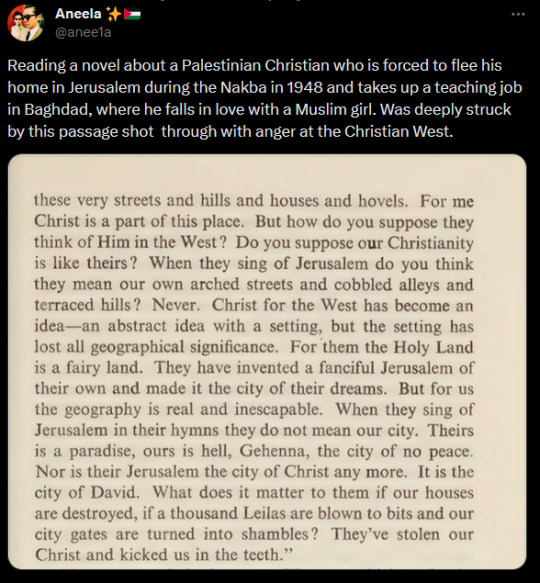
thinking about this today
#OP said the book is hunters in a narrow street#by jabra ibrahim jabra#going on my to read list#palestine
21K notes
·
View notes
Text
AMAZING article about what it means to participate in anti-Zionism work both online and in person.
If your anti-zionism does not in any way acknowledge that it is a way of thought and practice led by and for Palestinians, then you need to reevaluate your "anti-zionism" label.
Some passages that felt especially relevant to tumblr:
If we accept, as those with even the most rudimentary understanding of history do, that zionism is an ongoing process of settler-colonialism, then the undoing of zionism requires anti-zionism, which should be understood as a process of decolonisation. Anti-zionism as a decolonial ideology then becomes rightly situated as an indigenous liberation movement. The resulting implication is two-fold. First, decolonial organising requires that we extract ourselves from the limitations of existing structures of power and knowledge and imagine a new, just world. Second, this understanding clarifies that the caretakers of anti-zionist thought are indigenous communities resisting colonial erasure, and it is from this analysis that the strategies, modes, and goals of decolonial praxis should flow. In simpler terms: Palestinians committed to decolonisation, not Western-based NGOs, are the primary authors of anti-zionist thought. We write this as a Palestinian and a Palestinian-American who live and work in Palestine, and have seen the impact of so-called ‘Western values’ and how the centring of the ‘human rights’ paradigm disrupts real decolonial efforts in Palestine and abroad. This is carried out in favour of maintaining the status quo and gaining proximity to power, using our slogans emptied of Palestinian historical analysis.
Anti-zionist organising is not a new notion, but until now the use of the term in organising circles has been mired with misunderstandings, vague definitions, or minimised outright. Some have incorrectly described anti-zionism as amounting to activities or thought limited to critiques of the present Israeli government – this is a dangerous misrepresentation. Understanding anti-zionism as decolonisation requires the articulation of a political movement with material, articulated goals: the restitution of ancestral territories and upholding the inviolable principle of indigenous repatriation and through the right of return, coupled with the deconstruction of zionist structures and the reconstitution of governing frameworks that are conceived, directed, and implemented by Palestinians.
Anti-zionism illuminates the necessity to return power to the indigenous community and the need for frameworks of justice and accountability for the settler communities that have waged a bloody, unrelenting hundred-year war on the people of Palestine. It means that anti-zionism is much more than a slogan.
[...]
While our collective imaginations have not fully articulated what a liberated and decolonised Palestine looks like, the rough contours have been laid out repeatedly. Ask any Palestinian refugee displaced from Haifa, the lands of Sheikh Muwannis, or Deir Yassin – they will tell that a decolonised Palestine is, at a minimum, the right of Palestinians’ return to an autonomous political unit from the river to the sea.
When self-proclaimed ‘anti-zionists’ use rhetoric like ‘Israel-Palestine’ – or worse, ‘Palestine-Israel’ – we wonder: where do you think ‘Israel’ exists? On which land does it lay, if not Palestine? This is nothing more than an attempt to legitimise a colonial state; the name you are looking for is Palestine – no hyphen required. At a minimum, anti-zionist formations should cut out language that forces upon Palestinians and non-Palestinian allies the violence of colonial theft.
[...]
The common choice to centre the Oslo Accords, international humanitarian law, and the human rights paradigm over socio-historical Palestinian realities not only limits our analysis and political interventions; it restricts our imagination of what kind of future Palestinians deserve, sidelining questions of decolonization to convince us that it is the new, bad settlers in the West Bank who are the source of violence. Legitimate settlers, who reside within the bounds of Palestinian geographies stolen in 1948 like Tel Aviv and West Jerusalem, are different within this narrative. Like Breaking the Silence, they can be enlightened by learning the error of colonial violence carried out in service of the bad settlers. They can supposedly even be our solidarity partners – all without having to sacrifice a crumb of colonial privilege or denounce pre-1967 zionist violence in any of its cruel manifestations.
As a result of this course of thought, solidarity organisations often showcase particular Israelis – those who renounce state violence in service of the bad settlers and their ongoing colonisation of the West Bank – in roles as professionals and peacemakers, positioning them on an equal intellectual, moral, or class footing with Palestinians. There is no recognition of the inherent imbalance of power between these Israelis and the Palestinians they purport to be in solidarity with – stripping away their settler status. The settler is taken out of the historical-political context which afforded them privileged status on stolen land, and is given the power to delineate the Palestinian experience. This is part of the historical occlusion of the zionist narrative, overlooking the context of settler-colonialism to read the settler as an individual, and omitting their class status as a settler.
It is essential to note that Palestinians have never rejected Jewish indigeneity in Palestine. However, the liberation movement has differentiated between zionist settlers and Jewish natives. Palestinians have established a clear and rational framework for this distinction, like in the Thawabet, the National Charter of Palestine from 1968. Article 6 states, ‘The Jews who had normally resided in Palestine until the beginning of the Zionist invasion will be considered Palestinians.’
When individuals misread ‘decolonisation’ as ‘the mass killing or expulsion of Jews,’ it is often a reflection of their own entanglement in colonialism or a result of zionist propaganda. Perpetuating this rhetoric is a deliberate misinterpretation of Palestinian thought, which has maintained this position over a century of indigenous organising.
Even after 100 years of enduring ethnic cleansing, whole communities bombed and entire family lines erased, Palestinians have never, as a collective, called for the mass killing of Jews or Israelis. Anti-zionism cannot shy away from employing the historical-political definitions of ‘settler’ and ‘indigenous’ in their discourse to confront ahistorical readings of Palestinian decolonial thought and zionist propaganda.
[...]
In the context of the United States, the most threatening zionist institutions are the entrenched political parties which function to maintain the status quo of the American empire, not Hillel groups on university campuses or even Christian zionist churches. While the Anti-Defamation League (ADL) and the American Israel Public Affairs Committee (AIPAC) engage in forms of violence that suppress Palestinian liberation and must not be minimised, it is crucial to recognise that the most consequential institutions in the context of settler-colonialism are not exclusively Jewish in their orientation or representation: the Republican and Democratic Party in the United States do arguably more to manufacture public consent for the slaughtering of Palestinians than the ADL and AIPAC combined. Even the Progressive Caucus and the majority of ‘The Squad’ are guilty of this.
Leila Shomali and Lara Kilani
2K notes
·
View notes
Text

"Publishers for Palestine is a global collective of publishers, and others who work in publishing around the world, who stand for justice, freedom of expression, and the power of the written word.
Join us for an international #ReadPalestine week, starting Wednesday, November 29, on the International Day of Solidarity with the Palestinian People. During this week, we encourage people around the world to read fiction and poetry by Palestinian and Palestinian diaspora authors, as well as nonfiction about Palestinian history, politics, arts, culture, and life, as well as books about organizing, resistance, and solidarity for a Free Palestine.
To encourage the spread of #ReadPalestine, signatories of the Publishers for Palestine letter of solidarity have organized a Free Palestine Reading List. Participating publishers are offering one of their e-book titles for free download from November 29 to December 5; all titles are available through this website. There are currently more than thirty books on the list in nine languages, including a half-dozen award winners, with more coming in.
We also encourage readers to post on social media about their favorite Palestine books, to quote from their favorite authors, and to make learning more about Palestine an act of solidarity, using the hashtags #ReadPalestine, #LirelaPalestine, #اقرأ_فلسطين, and more. Participating indie bookstores and libraries are invited to join us by creating Read Palestine displays, social media posts, and other forms of creative solidarity."
#readpalestine#publishers for palestine#palestine#reading list#free resources#mine#ref#ref: mine#the hits
2K notes
·
View notes
Text




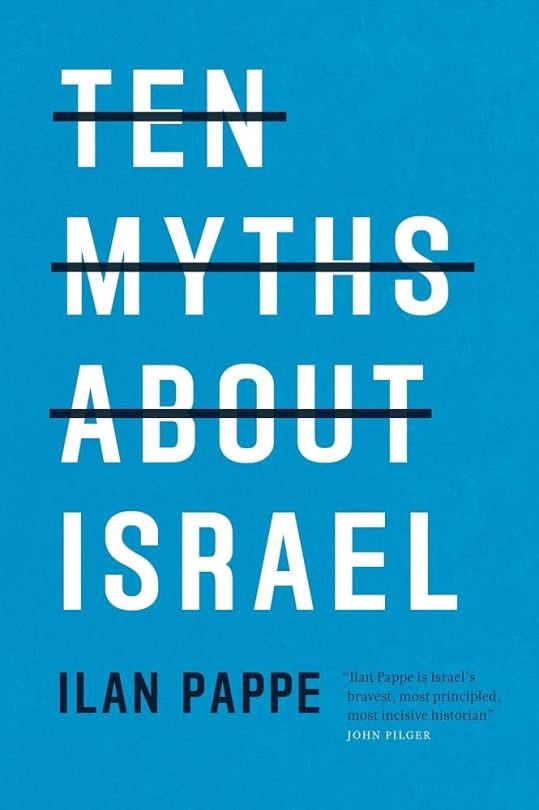

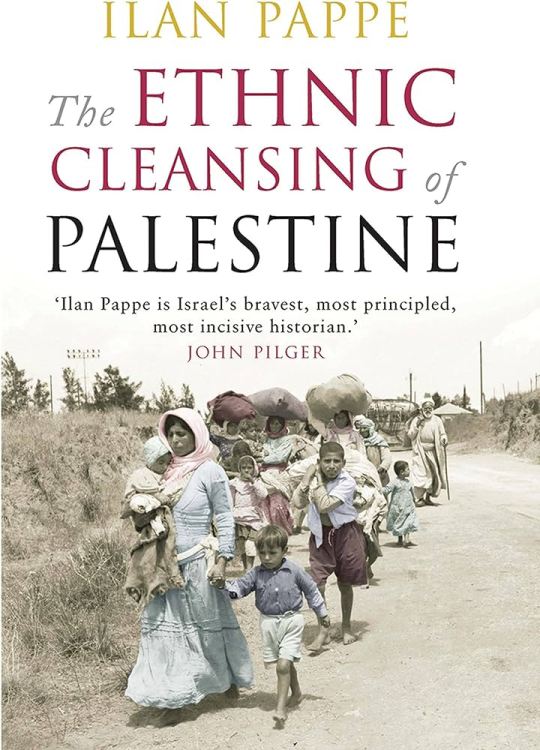
Recommended reading on Palestine, Israel, and Zionism
#palestine#israel#zionism#settler colonialism#all of these I've read and recommend - there are others on my reading list that I've yet to get to
2K notes
·
View notes
Text

this is a jewish leftist and antizionist reading list steering entirely clear of zionists or normalizing publishers. there is a form for suggestions. posted by chaiya_redacted
2K notes
·
View notes
Text
the problem with all these white authors like rick riordan who are revealing their stances on the israel-palestine apartheid is that they barely do anything but virtue signal when they claim “i’m on the side against war” “i’m anti-violence” “i abhor terrorism.” zero people are going to disagree with you. zero people believe what hamas did is justified. zero people think israel shouldn’t have a right to defend itself against terrorism. but that isn’t what israel is doing when they collectively punish all of palestine, who doesn’t even have an official army. when rick riordan says some wishy-washy bullshit about the violence suffered on both sides of the conflict, and words his whole dumbass blog post like it’s violence that is in any way equal, that literally helps no one. in fact, it’s so damn negligent of the 75 years of violence that palestine has suffered and been oppressed for. yes, there are innocent civilians in israel who are suffering, no one is disagreeing with you. that doesn’t erase the fact that israel is a disgusting state that has used state-sanctioned violence on a systemic scale since its conception, and the oppressed people have responded to that in violent retaliation (because OBVIOUSLY they would). israel is built on the subjugation of palestine, there is no equal suffering between the two.
#ricky when i catch you ricky#so fucking disappointed with rick and aveyard and gaiman and brown and tjr and the list goes on#it makes me so damn mad. israel doesnt need your support to genocide palestinians#was thinking about buying chalice of the gods but im probs not going to for now#maybe until i can get it secondhand. but idk if i even care to read it atp#riordanverse#rick riordan#free palestine#percy jackson#pjo#hoo#heroes of olympus#toa#trials of apollo#correct riordanverse#rewriting#what is happening to innocent israelis is horrible. but i find it funny how the world only cares when its an israeli person#suddenly every innocent palestinian who has died since israel’s conception is flattened by history to somehow be on equal terms#10000 palestinians have died since 2008. its not equal at all.#how can u say that the attacks in gaza have reached genocidal proportions and then still talk abt suffering of israel like its equal???#‘What can I do? I will continue to write books—‘ oh my god shut up#‘I will resist the urge to demonize entire groups of people.’ YAWN#‘ I will call for less violence not more violence. 🥺🥺’#‘ And when asked whose side I am on I will tell you I am on the side of humanitarianism—‘ OH MY GOD SHUT UPPP
313 notes
·
View notes
Text
Btw, if anyone cares to know, my position on Biden and the 2024 election is this:
Starting September* 1, 2024, I will be doing whatever I can to make sure that Trump does not get a second term as president
Until that day, I'm going to be doing whatever I can to push for an end to the genocide in Gaza and an immediate ceasefire, and that includes criticizing, protesting, and lambasting Biden for funding and providing weapons for Israel's genocide
ETA: I will still be posting about significant good things the Biden administration has done, though, because some of it is a really big deal that people deserve to know about
ETA: But I will not be defending Biden from any criticism around Palestine/Israel/war crimes
*This originally said October 1st but someone pointed out to me that there are a few states where early voting starts in late September, including a couple swing states, so I changed it because that's a very good point
I don't plan to tell anyone not to vote for Biden in the meantime, myself, because shitty two party system and I'm really serious about Trump not getting reelected
But I'm also not going to do anything to discourage people who are seriously rallying against Biden, because he is, you know, literally bypassing Congress to make sure he can fund crimes against humanity
I never want to diminish that reality.
And more than that: If we want genocide to actually be a dealbreaker for politicians and presidents... then we need to start acting like it could be.
--
Details/related thoughts:
I will still be posting about good things Biden and his administration are doing, because they are the ones running the US government and Congress is super deadlocked, so a lot of the national-level good news in the US has been done by his administration, and I'm not going to stop posting about that good news
Shout-out to the anon who accused me of being a US government propagandist with a whole PR team bc I posted about Biden a few days in a row. I promise you I'm blogging from my bed in my pjs and do not have a PR team lol
Also, for people who don't think we should be spreading serious criticism about Biden, for fear of Trump winning in 2024: I hear you--that's an incredibly valid fear. I've struggled with that myself, in the process of coming to this(/these) decision(s). But consider this: it's better that we really pile on the criticism and pressure now, because a) people are dying, and b) Biden's chances will be much worse if Israel is still bombing/decimating Gaza on election day
Relatedly, for anyone who's tempted to think Trump would be better when it comes to the Gaza genocide, again, it's really understandable to want to put your hope in any viable alternative. However, I promise you that is not going to happen. Joe Biden at least conditionally gives a couple shits about human life. Trump doesn't. Remember Trump's Muslim ban? In all likelihood, Trump would just tell Israel to bomb Gaza harder and ban Palestinian refugees from entering the US
Last thing on Trump: maybe this is naive of me, but for a lot of reasons, I'm not actually particularly worried about Trump winning in 2024. If I was, I might have made some different calls here. I have a few asks about this in my inbox and will probably make a post at some point about the reasons why, but yeah, Democrats have mostly been wanting to run against Trump instead of DeSantis or Haley or whoever for some very real reasons
You're welcome to disagree with me/this post in any direction, btw
Seriously, I'm just a random person who doesn't speak for anyone besides myself and my own blog. I'm not saying these are categorically the right answers, or that any of this is what everyone should be doing. This is simply the system I have settled on (right now) for how I personally want to handle all of this
You're welcome to disagree with me but please don't send me any angry asks about any of it. Not that I in any way get a lot of those, thankfully! But yeah, this isn't something I'm interested in debating, this is mostly for notification/explanation purposes
#palestine#cw war#cw genocide#us politics#biden#not news#me#reminder that all my posts related to the war/genocide are tagged as “palestine” and “cw war”#and if you need to filter reminders about all of this then you should#esp coming from you know a good news blog#Far better to engage with all of this news/info deliberately when/where you're in a place to handle it#then to keep spiraling and spiraling because it keeps surprising you in the middle of your dash#that's what I do actually I have several related tags filtered on here#and then when I'm up for it I go read a bunch of news articles and look up protest listings#and you know actually go to protests or post about it on here etc. etc.
165 notes
·
View notes
Text
really well organised and comprehensive reading list on decolonizepalestine for anyone interested and looking to educate themselves it's super easy to navigate and has a section for people completely new to the subject
225 notes
·
View notes
Text
So I'm reading The Palestine Laboratory by Antony Loewenstein and I think it's difficult for the layperson--even ostensibly antizionists, passionate antizionists--to fully grasp the extent to which Israel is just a manufacturing plant that exports death and destruction. The extent to which Israel depends entirely on narrative to survive, especially as a nation whose closet of skeletons includes every single victim of genocide in the post WWII world that they could support the externination of. From Argentina to Uganda to Bosnia to Paraguay to Myanmar to Chile to Zimbabwe and Iraq and Lebanon and Brazil; Israel sides with whoever is paying for guns and "anti-terror" training which consists primarily of torture.
127 notes
·
View notes
Text
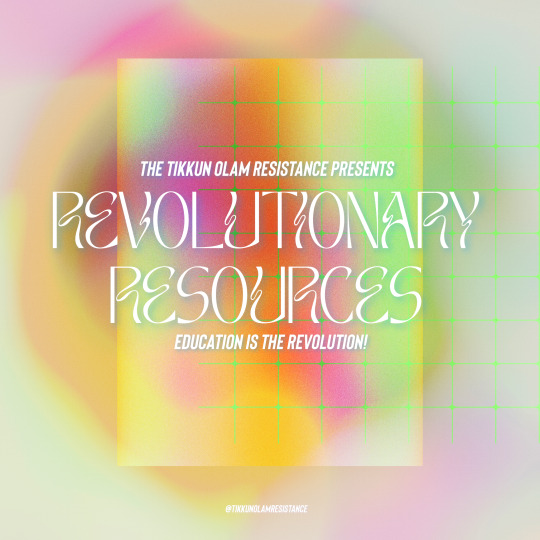
REVOLUTIONARY RESOURCES
WE’VE BEEN WORKING ON AN ACCESSIBLE GOOGLE DRIVE PROVIDING PDF AND EBOOK RESOURCES ON ESSENTIAL REVOLUTIONARY READING.
Accessible by this link, you can find resources on Palestine, the Black liberation movement and essential Communist thought:
We believe that it’s essential to the revolution to stay informed and educated, and that education should be fully accessible to everyone.
(NOTE: Our current resources are unfortunately limited to English and some Spanish, but we are working hard on providing resources in more languages. Let us know if you have any translations or materials!)
UPDATED SPORADICALLY:
We aim to have a section on Imperial Japan added soon.
#anti capitalism#anti imperialism#palestine#jumblr#free palestine#jewish thought#communism#socialism#revolutionary reading#reading#to read#reading list#revolition#marx#lenin#engles#ture#black liberation#black lives matter#blm#black socialism#black communism
104 notes
·
View notes
Text
A Sudanese Feminist reading list
#free sudan#sudan#keep eyes on sudan#eyes on sudan#feminism#reading list#books#sudan resources#free palestine
44 notes
·
View notes
Text
We curated this feminist reading list as a resource for anyone seeking new feminist reading by Palestinian authors. Many Palestine-focused reading lists have been created, but we did not find one centering on feminism.
In consultation with Palestinian authors and publishing professionals, we created a list of recently published books for adult readers in various genres.
We were focused on including resources published within the past five years, although a few older essential reads are also included. This is not a comprehensive list by any means.
We define feminist broadly, but as feminists who create syllabi and reading lists, we work in the context of many feminists overlooking Palestinian work entirely.
We create this resource as an intervention of sorts, given the rising censorship and suppression of Palestinian authors and writers. Our intention is to create a resource for anyone seeking new reading, hosting feminist book clubs, or adding new options to their feminist course syllabi.
We recommend you purchase the books from the Books for Palestine Bookshop.
#palestine#reading resources#palestine resources#palestinian feminist reading list#gayatri sethi#karla j. strand#susannah aziz#susan muaddi daraj#ref#book recs#mine
189 notes
·
View notes
Text


I’m so excited to read this I’ve waited so long!!
#indigenous liberation#palestine#turtle island#indigenous rights#settler colonialism#reading list#lgbt
123 notes
·
View notes
Text
🇵🇸 Palestinian Fiction Books for Your TBR 🇵🇸
✨ Fiction stories can make an individual's experience universal and easier to understand from an outsider's perspective. We learn about one another's histories, realities, and cultures through fiction stories, even if we don't realize it. As a way of educating yourself and empathizing, here are a few Palestinian fiction books you can add to your ever-growing TBR for read Palestine Week.
🇵🇸 Please, please help me ensure these books receive the attention they deserve by sharing this post.
🌙 Minor Detail by Adania Shibli
🇵🇸 Salt Houses by Hala Alyan
✨ A Woman is No Man by Etaf Rum
🌙 Against the Loveless World by Susan Abulhawa
🇵🇸 The Sea Cloak: And Other Stories by Nayrouz Qarmout
✨ Wild Thorns by Sahar Khalifeh
🌙 The Parisian by Isabella Hammad
🇵🇸 Palestine +100: Stories from a Century after the Nakba
✨ Mornings in Jenin by Susan Abulhawa
🌙 We are All Equally Far from Love by Adania Shibli
🇵🇸 My First and Only Love by Sahar Khalifeh
✨ Where the Bird Disappeared by Ghassan Zaqtan
🌙 Trees for the Absentees by Ahlam Bsharat
🇵🇸 Mother of Strangers by Suad Amiry
✨ You Exist Too Much by Zaina Arafat
#read palestine week#save palestine#free palestine#books#book list#muslim writers#arab american writers#arab american heritage month#fiction books#batty about books#battyaboutbooks#book blog#booklr#bookstagram#books to read
41 notes
·
View notes
Note
i feel torn. people are telling me i cannot support indigenous people, because i don't agree with accounts like blm chicago over on instagram lying, saying the only israeli hostages are soldiers. because i don't feel okay right now marching alongside people chanting 'gas the jews' and holding up swastikas. i feel gaslit as a jew.
is it true that i can't support indigenous folks while being terrified and mourning for the jewish lives lost? how can we share the powerful art of indigenous americans attacking their colonizers and still hold fear for israeli civilians in our hearts? can both be true at once or am i a hypocrite?
i can't pretend to have all the answers for you nonny, i wish i could. i'll walk you through my thought process from a jewish anarchist standpoint, and hopefully that may help you as well. i definitely got a bit rambly and my response is really long, but i think it's all important so i'm just putting it below a cut!
important note about the ashkenazic slant of my response! [link]
1. indigeneity is much less cut and dry when it comes to eretz israel than it does for, say, america, and it's already complicated enough in america
some people say jews are indigenous to eretz israel, some people say most jews are now colonizers in that land. i think this speaks both to the complicatedness of indigeneity and also the struggle of being a jew. determining who is and isn't indigenous in usamerican territories generally boils down to blood quantum under the eye of the state government ("nation on no map" by wc anderson goes into the issues with this approach very well), when it may be better described as a cultural inheritance. in terms of the history of jews. the european colonizations of basically the entire world is very, very recent. (the second temple fell in 70CE, whereas colón only made first contact with the taíno in october of 1492, coincidentally the year spain began its expulsion of jews from the iberian peninsula. this is especially relevant bc many jews began to flee to "The New World™️" trying to escape constant persecution in europe. there are some writings out of jerusalem from this year describing the diversity of people living there, as well as the oppression of jews by muslims at this time.) if you asked me, i think it's too simplistic to call jews either indigenous to eretz israel or colonizers. jews have been on the move and in diaspora since 70CE, a date that is before even the construction of la pirámide de la luna in teotihuacán (more accurately it'd be at least since the fall of the first temple in 500BCE but w/e). the long and the short of it is that jews left jerusalem before the height of teotihuacán, one of the first states in all of mesoamerica. how far back does this definition of indigeneity go? that's not for any one of us to really ask
(i think there's also an issue of white-presenting/-identifying/-whatever jews and specifically ashkenazim claiming this indigenous label that feels very. idk. it's iffy at best to me)
i think the main takeaway i have for this point is that the binary of colonizer/colonized is a lot more difficult than we'd like to think (for an example that hits closer to home, we can talk about african americans' presence in colonized lands, or natives' ownership of slaves in turn. this isn't "whataboutism," it's me illustrating that binaries hinder in-depth understanding of these categories. this discussion could take up books and is not the focus of this post, but please know this is a topic that is very serious and very very nuanced)
2. anarchism and decolonialism is a process, not a destination, and if anybody tells you they know the perfect say to do either of these processes, run the other way
i've see a lot of people in the past few days gesture to the actions of hamas and say "this is what decolonization looks like," and "nobody ever said decolonization will be pretty." this intersects with my fourth point, so i'll leave it at this: decolonizing eretz israel does not necessitate denying the holocaust, calling for the slaughter of every jew "from the river to the sea" (i recommend y'all look into the history of this term), or threatening to spread videos of the torture and murder of jewish civilian hostages throughout social media. this is when i point to the fact that the area that was attacked a few days ago was actually where a lot of leftists lived. also, that the jewish and/or israeli people have been very outspoken about the many atrocities both domestic and foreign by the israeli government for decades. i would say an alternative to what is happening now may have been to work with those protestors (many of whom have been very vocal about the mistreatment of palestinians bc obviously) or like anything that doesn't include holocaust denialism and the rape, torture, murder, defilement, whatever of civilians and children
3. judaism and anarchism teach us to make our homes in the uncomfortable
i'm comforted by knowing that not knowing the correct solution to things means we're on the right track. it encourages us to collaborate, debate, listen, do research, keep our minds open, learn, whatever. i mean when has a jew ever been like "i have the one answer to this complicated problem" and everybody else was like "yeah sweet okay that's solved?" at least in my studies, i've noted that the jewish tradition includes embracing the discomfort of two things being true at once, or nothing quite feeling like the one right answer. this is also an anarchist tradition (at least in the circles i run in). generally, anarchists have the policy of "if someone says they have the one correct solution, run the opposite direction."
basically what i'm saying is, asking these questions doesn't mean you're a bad jew or a bad activist. we all know why pesach is different than all other nights, yet we ask that question every year, and every year we have a discussion that bears new fruit. (the book that really opened my eyes to the homeyness of the uncomfortable is "brilliant imperfection: grappling with cure" by eli clare)
4. our political motivation must be out of love for each other, not hatred of Them™️
this is the most important takeaway from everything, in my opinion, and also my biggest gripe with the loudest leftists online. this is also something i've written many papers about, but i'll try to keep it brief.
if your idea of revolution is based on simply rooting out those you hate, not only will it be horribly unsustainable but your success will hinge on destroying your own motivating force. if you succeed, the people you hate will no longer be present, and you'll have to either pick a new motivating force or pick a new group of people to hate. to use the ussr as an example (bc the notes on this post are already gonna be nuclear-toxic, so what the hell), the ussr spent a LOT of energy after The Revolution™️ policing, surveilling, terrorizing, jailing, and killing its own people. entire generations were never able to trust others because of the constant fear of stepping out of line and being labeled as a threat. in order to keep the momentum of the state afloat, the ussr had to find new people to hate, and that new people had to come out of their own citizenry. it's a common critique of fascism—that their circle of acceptable people will get smaller and smaller until one day it's only one person, and even that one person won't live up to their own ideals.
basically, a revolution built on the hatred of the other rather than the love of the world is a revolution that, in my mind, is not worth having. that doesn't mean revolution must be 100% violence free, lord knows i don't mean that. but having love for humanity allows us to avoid dehumanizing the other (who oftentimes aren't as Other as we think). a lot of landlords are just everyday people who own one property and do genuinely care about their tenants. a lot of cops did genuinely think they were going to make a positive difference. a lot of israelis are just normal, everyday people like you and me (WITHOUT the luxury of being able to just up and move countries). it's worryingly easy to say someone isn't a real activist because they don't vehemently hate Them™️ but honestly to me that's a sign you're on the right track. i am a proud, usamerica-hating anarchist who already has one arrest under their belt, yet here i am still living in the us. and this isn't a contradiction bc dammit i have to live somewhere, and there's nowhere else for me to go even if i did have the money and means to move.
israelis are human beings, just like you and me, and being torn to bits by the atrocities. these people aren't soldiers, they aren't far right politicians, they aren't anything like that. they're human beings, and we can never forget that
#though i do mention a couple books i am not saying those are the only books to read about this. for one i don't include a book on indigenou#lib. that is at least partially bc i don't want to give off the impression that i'm listing every single book i've ever read#some of this wording is clumsy. please assume good faith as i hope i've demonstrated that i am saying all of this in good faith#anonymous#jumblr#jewish anarchism#medinas israel#israel#am israel chai#palestine#leftist antisemitism#anarchism#decolonization#tsiyyonus definition#sources cited
55 notes
·
View notes